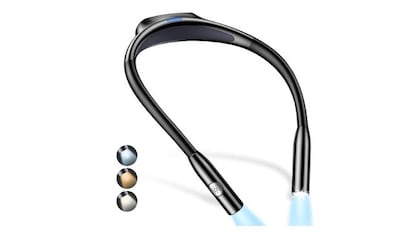Cable sobre las presiones de Estados Unidos a Rusia
Según el cable 246424, Estados Unidos presionó a Rusia en beneficio de Visa y MasterCard
| ID: | 246424 |
| Date: | 2010-02-01 04:41:00 |
| Origin: | 10MOSCOW228 |
| Source: | Embassy Moscow |
| Classification: | CONFIDENTIAL |
| Dunno: | 10MOSCOW79 |
| Destination: | VZCZCXRO2635 OO RUEHDBU RUEHFL RUEHKW RUEHLA RUEHNP RUEHROV RUEHSL RUEHSR DE RUEHMO #0228/01 0320441 ZNY CCCCC ZZH O 010441Z FEB 10 FM AMEMBASSY MOSCOW TO RUEHC/SECSTATE WASHDC IMMEDIATE 6119 INFO RUEHZL/EUROPEAN POLITICAL COLLECTIVE PRIORITY RUCPDOC/DEPT OF COMMERCE WASHDC PRIORITY RUEATRS/DEPT OF TREASURY WASHDC PRIORITY RHEHNSC/NSC WASHDC PRIORITY RHEHAAA/WHITE HOUSE WASHDC PRIORITY |
C O N F I D E N T I A L SECTION 01 OF 02 MOSCOW 000228 SIPDIS STATE FOR EUR/RUS, EEB TREASURY FOR TORGERSON/WRIGHT NSC FOR MCFAUL WHITE HOUSE FOR USTR EHAFNER E.O. 12958: DECL: 01/28/2020 TAGS: EINV, ETRD, RS SUBJECT: RUSSIAN DRAFT BILL WOULD REQUIRE ON-SHORE CREDIT CARD PROCESSING REF: MOSCOW 00079 Classified By: ECONMINCOUNS Matthias Mitman for Reasons 1.4(b) and (d) 1.(C) SUMMARY: The latest version of the Russian draft law "On the National Payment System" contains several provisions that would disadvantage U.S. businesses. The draft law would set up a National Payment Card System (NPCS) including its own payment card that banks and payment card companies could join voluntarily. Most likely to be a consortium of state-owned banks, the NPCS operator would process the domestic payments for all members and collect processing fees estimated at $4 billion per year. The draft also forbids sending abroad any payment data for domestic transactions. Should international payment card companies such as Visa and MasterCard chose not to join the NPCS they would have to set up the infrastructure to do their Russian payment processing domestically. END SUMMARY. 2.(C) On January 27, the Russian newspaper Kommersant reported that it had received a copy of the "final" version of the draft legislation "On the National Payment System." Visa's Public Relations Head xxxxxxxxxxxx, who along with MasterCard representatives met Ministry of Finance officials on January 22, told us that MinFin is still seeking consent from the various ministries and agencies involved in the legislation. xxxxxxxxxxxx reported that Deputy Finance Minister Svyatugin leads MinFin's effort on this legislation, including shepherding the bill through the GOR interagency process. xxxxxxxxxxxx passed a copy of the latest draft law to econoff. To Join or Not To Join ----------------------- 3.(C) According to Visa's xxxxxxxxxxxx, the latest version follows the "China model" of payment card systems. The law would set up a National Payment Card System (NPCS), which xxxxxxxxxxxx reported would likely be run by a consortium of state banks as either a non-profit entity or a joint stock, profit-making company. Banks and credit card companies would have the option of joining the NPCS. If they joined, banks in Russia would issue cards under the NPCS brand, with its own logo. Payment processing for these cards would be done on-shore by the NPCS entity. According to the Kommersant article, the fees for these services are estimated at Rb 120 billion ($4 billion) annually. As xxxxxxxxxxxx pointed out, the vast majority of Visa's business in Russia is done with cards issued and used in Russia; with earnings from processing going to NPCS, Visa would no longer profit from these transactions. 4.(C) While joining the NPCS would be optional for both banks and international payment card companies, membership has its privileges. If Visa and MasterCard choose to join the NPCS, they would not have any role in domestic transaction processing, but the bank-issued NPCS cards could be "co-branded" with Visa or MasterCard. When the cardholder used his card abroad, the transaction theoretically would go through the normal Visa or MasterCard processing that takes place outside of Russia. While xxxxxxxxxxxx said such a deal is a possibility, it would require negotiations to specify this approach in the draft law. ON-SHORE PAYMENT PROCESSING REQUIRED ------------------------------------ 5.(C) In the proposed draft of the law, if international payment card companies choose not to join the NPCS, they will have to set up on-shore processing centers. But neither Visa nor MasterCard representatives, which together have 85% of the Russian payment card market, are willing to say whether they would be willing to do so. MasterCard's Head in Russia, xxxxxxxxxxxx, said MasterCard would have to "build and assess the business model of setting up on-shore processing" before it could reach a decision. The draft law stipulates that international payment card companies will have one year to establish processing centers inside of Russia. (Note: Currently no international companies have processing centers in Russia.) A ban on sending abroad payment data for purely domestic transactions will become effective two years after the law enters into force. 6.(C) According to xxxxxxxxxxxx, MinFin understands that this MOSCOW 00000228 002 OF 002 would entail so much expense and difficulty for Visa and MasterCard that the two companies might quit the Russian domestic market. xxxxxxxxxxxx believes that, at least at the Deputy Minister level, MinFin's hands are tied. Implying that Russian security services were behind this decision, xxxxxxxxxxxx said, "There is some se-cret (government) order that no one has seen, but everyone has to abide by it." As described reftel, credit card company and bank representatives have told us that GOR officials apparently assume that US payment systems routinely share data associated with payment transactions by Russian cardholders with intelligence services in the US and elsewhere. STATE EMPLOYEES ALL GET NPCS CARDS ---------------------------------- 7.(C) The current draft of the law would require all stated-owned enterprises and all state employees to be issued NPCS cards and to receive their salaries via electronic deposit into NPCS member-banks. (Note: Eighty percent of payment card holders have what are called "salary cards," a type of debit card negotiated between the employer and a bank. Historically, employees have used their salary cards almost exclusively to withdraw their salaries at the beginning of each month, though they can also use them as debit cards.) One positive aspect of the latest version of the law is that vendors are not required to accept NPCS cards, as was required in earlier versions. COMMENT ------- 8.(C) This draft law continues to disadvantage U.S. payment card market leaders Visa and MasterCard, whether they join the National Payment Card System or not. If they join, the NPCS operator will collect the fees, leaving them to collect processing fees only when card-holders travel abroad -- a tiny section of the market. If they do not join but choose to compete with NPCS cards, they will have to set up payment processing centers in Russia, a very large investment in itself, and compete against a system likely backed by the largest Russian state banks. While the draft legislation has yet to be submitted to the Duma and can still be amended, post will continue to raise our concerns with senior GOR officials. We recommend that senior USG officials also take advantage of meetings with their Russian counterparts, including through the Bilateral Presidential Commission, to press the GOR to change the draft text to ensure U.S. payment companies are not adversely affected. END COMMENT. Beyrle |
Traducción automática. Puede que el texto traducido no sea fiel al original
Tu suscripción se está usando en otro dispositivo
¿Quieres añadir otro usuario a tu suscripción?
Si continúas leyendo en este dispositivo, no se podrá leer en el otro.
FlechaTu suscripción se está usando en otro dispositivo y solo puedes acceder a EL PAÍS desde un dispositivo a la vez.
Si quieres compartir tu cuenta, cambia tu suscripción a la modalidad Premium, así podrás añadir otro usuario. Cada uno accederá con su propia cuenta de email, lo que os permitirá personalizar vuestra experiencia en EL PAÍS.
¿Tienes una suscripción de empresa? Accede aquí para contratar más cuentas.
En el caso de no saber quién está usando tu cuenta, te recomendamos cambiar tu contraseña aquí.
Si decides continuar compartiendo tu cuenta, este mensaje se mostrará en tu dispositivo y en el de la otra persona que está usando tu cuenta de forma indefinida, afectando a tu experiencia de lectura. Puedes consultar aquí los términos y condiciones de la suscripción digital.




























































